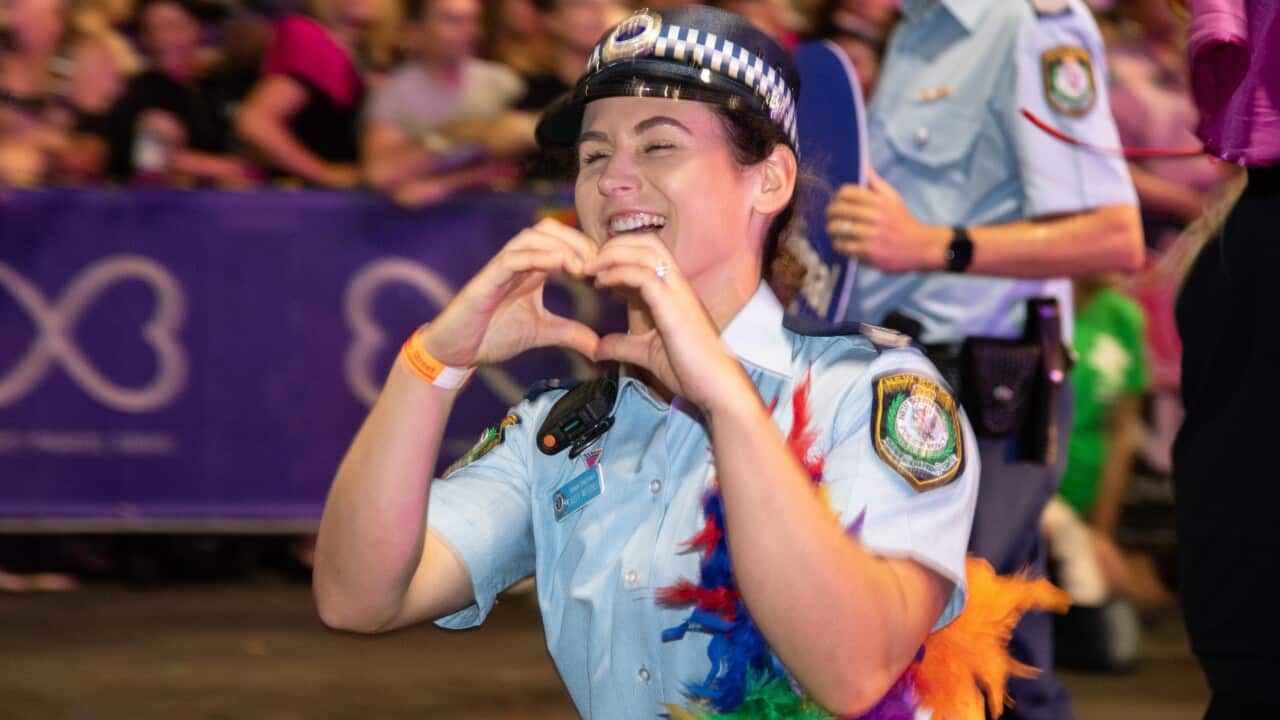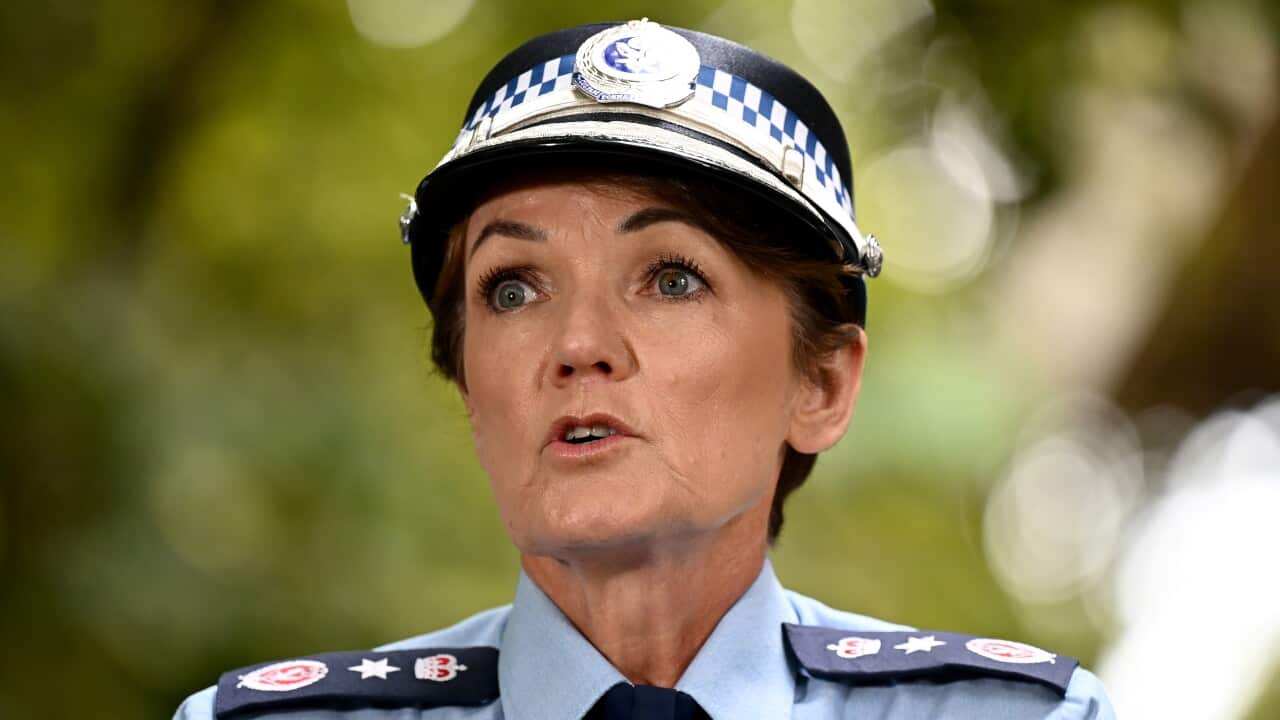Key Points
- NSW police were initially asked not to march at Mardi Gras this year by organisers but an agreement has been reached that they can march out of uniform.
- Some members of the LGBTIQ+ community say police never should have been invited to march.
- Police brutally beat and arrested people at the first Mardi Gras in 1978.
Some members of the LGBTIQ+ community have been calling for the police to be kicked out of Sydney’s annual Mardi Gras march for years.
This week, the NSW Police Force's invitation to march was , following allegations an officer
A deal was later reached between the board and the force that officers would march but not wear their police uniform.
"I am delighted that our LGBTQIA+ officers, as well as our other police who are allies and supporters, will be allowed to march this year as they have done for the past 20 years," NSW police commissioner Karen Webb said in a statement.
"The Sydney Gay and Lesbian Mardi Gras is an important event on the NSW Police calendar and as Commissioner, I am committed to continuing to strengthen the relationship between my organisation and the LGBTQIA+ community."
Australian Federal Police chose to withdraw from the march.
The first Mardi Gras
Under the 1901 crimes act it was illegal to be gay in Australia — having consensual gay sex was harshly and often violently punished by police, as was dressing "indecently".

Demonstrators during a Pride in Protest press conference. Source: AAP / Esther Linder
Gay and lesbian groups in the US had reached out to counterparts in Australia and asked them to hold solidarity marches for the liberation of LGBTIQ+ people and the repeal of discriminatory laws.
Groups in Sydney had held dozens of marches at this point but decided to add an extra night time celebration with a street party on 24 June 1978, attendee Robyn Kennedy told SBS News.
"There was no great intentions for the night party — we were just going to travel down Oxford Street, having some fun, playing some music, and then go to Hyde Park and read some telegrams, but the police were hassling us right from the word go," she said.
It quickly turned into a "riot" she said, with police dragging people away, beating them and arresting them, even though they'd had a permit to gather earlier in the day.

The so-called 78ers still march annually at Mardi Gras. Source: AAP / Bianca de Marchi
Police beat and arrested 53 people.
Many had their names, addresses and professions published in the media after they were arrested.
In the coming weeks, people holding vigils for those beat and arrested were arrested themselves.
Kennedy said police eventually stopped arresting LGBTIQ+ people at protests and counter-protests in August.
"It became politically untenable … this ongoing mass arrest for people who actually weren't doing anything, and who had permits for street marches."
Before 1978, and long after, police in Darlinghurst had a "bad reputation" for harassing LGBTIQ+ people, Kennedy said.
Police invited to march at Mardi Gras
Some 20 years later police were invited to march in the parade.
"They were invited because they had started to change their culture. By then they were employing gay and lesbian liaison officers," Kennedy said.
But the show of solidarity between police and the public has been unpopular with sections of the community ever since.
NSW police apologised in 2016 for brutally beating people at the first Mardi Gras.
But Pride in Protest has continued to advocate for police to be permanently banned from marching.

In 2016 NSW police apologised for brutally beating and arresting marchers at the first mardi gras in 1978. Source: AAP / Mark Baker
One Instagram user commented on Pride in Protest's page: "As a queer elder who fought so hard for us as a community, I've never understood Mardi Gras willingness to have police involved. But then again, this is the same people who turned a protest and celebration into a corporate nightmare."
A world-first inquiry into gay hate crimes examined cases in NSW between 1970 and 2010. The inquiry found police and that the force was "adversarial or unnecessarily defensive" during the inquiry.
The report was published late last year and made 19 recommendations, including that the police "build trust" with the LGBTIQ+ community.
Police are yet to commit to implementing the recommendations. Webb apologised for historic wrongdoings on Sunday — during an update on Baird and Davies' deaths.











